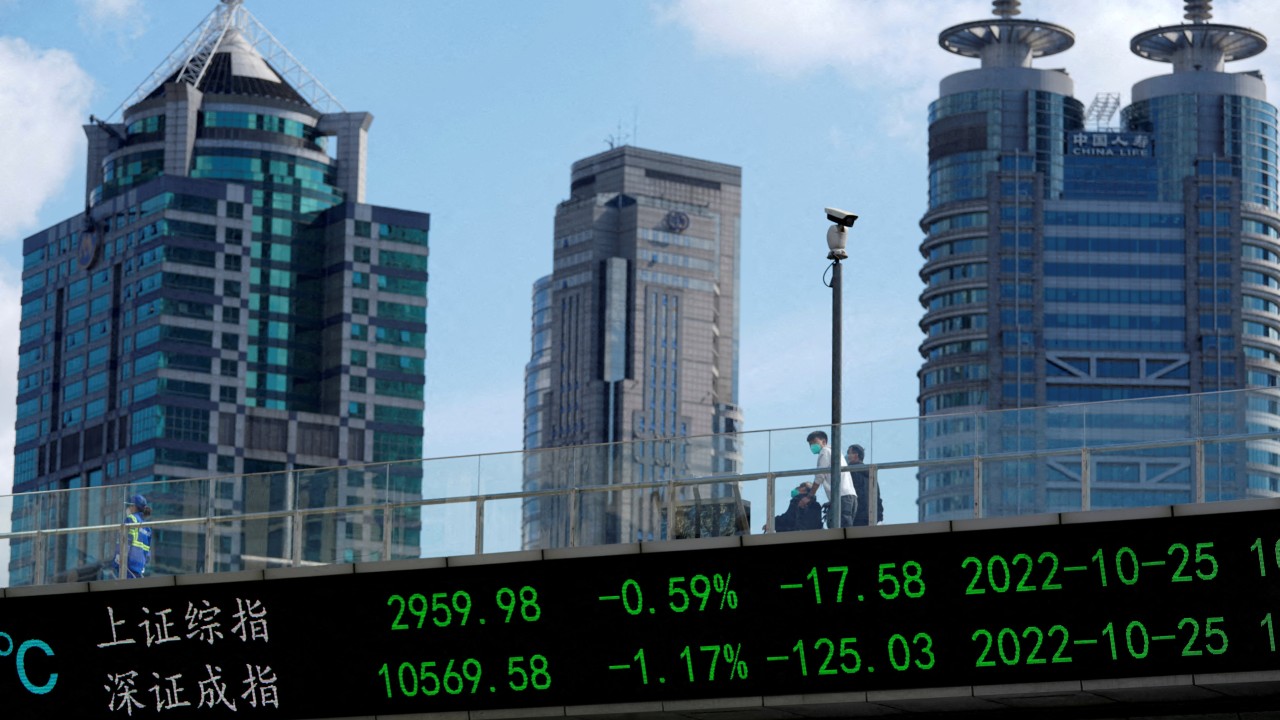
The Hang Seng Index fell 0.7 per cent to 17,059.33 at the noon break from Friday, reaching the lowest level since November 10. The Tech Index dropped 0.5 per cent, while the Shanghai Composite Index rebounded 0.4 per cent after China’s sovereign wealth fund bought exchange-traded funds (ETFs) to help shore up confidence.
Alibaba Group weakened 0.9 per cent to HK$77.80, Tencent lost 1 per cent to HK$286 and JD.com lost 2.5 per cent to HK$94.20. HSBC declined 1.6 per cent to HK$58.85, while sportswear maker Anta Sports Products retreated 1.7 per cent to HK$90 and peer Li Ning tumbled 1.3 per cent to HK$30.15.
“There’s no catalyst or change of fundamentals out there and weak sentiment has prevailed,” said Fu Jingtao, a strategist at Shenwan Hongyuan Group in Shanghai. “Risk appetite has soured.”
The Hang Seng Index tumbled 3.6 per cent last week, the most in two months, before a pause in trading on Monday for a public holiday. A slump in China’s housing market, heightened geopolitical risks in the Middle East and a hawkish Federal Reserve are sapping risk appetite, fanning gains in the US dollar.
Chinese sovereign wealth fund buys ETFs to shore up flagging stock market
Chinese sovereign wealth fund buys ETFs to shore up flagging stock market
Losses narrowed as China made another move to stem a loss in confidence. Central Huijin Investment, a unit under wealth fund China Investment Corp, bought ETFs tracking onshore stocks, according to a statement on its website on Monday.
The firm earlier spent about US$65.4 million on additional shares in the nation’s big four state-controlled lenders two weeks ago, incrementally raising its stake in the first such market support since the market crash in 2015.
Guangdong Suqun New Material, a maker of functional materials including synthetic graphite heat sink, surged 68 per cent to 69.90 yuan on the first day of trading in Shenzhen.
Other major Asian markets were mixed. Japan’s Nikkei 225 slipped 0.3 per cent and South Korea’s Kospi retreated less than 0.1 per cent while Australia’s S&P/ASX 200 rose 0.2 per cent.

